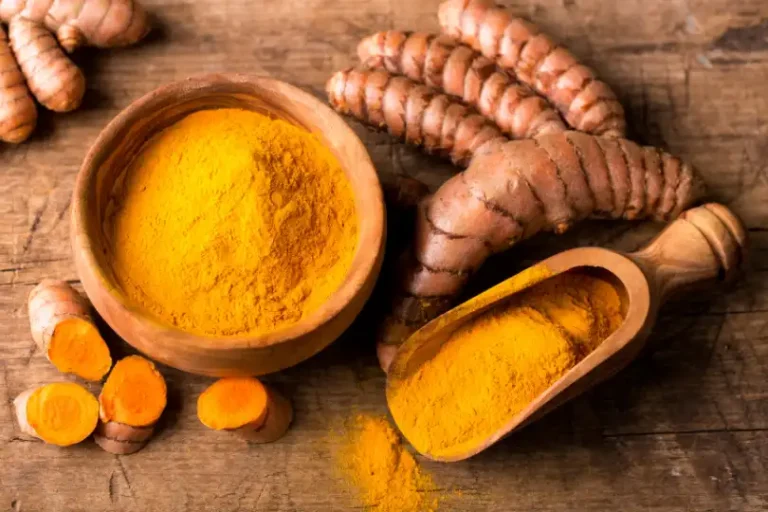Turmeric is a spice that has been used in cooking for over a thousand years. Known for its vibrant yellow color, it not only adds a unique flavor to dishes but also offers a range of health benefits, thanks to its active compound curcumin. Turmeric has powerful antioxidant and anti-inflammatory properties, making it incredibly beneficial for overall health. In this article, we’ll explore the health benefits of turmeric and how you can incorporate it into your daily routine.
What is Turmeric?
Turmeric is a root plant from the ginger family, native to Southeast Asia. The root is dried and ground into a powder to be used in cooking, herbal medicine, and supplements. The active ingredient, curcumin, is the compound responsible for most of the health benefits associated with turmeric.
Health Benefits of Turmeric
- Anti-Inflammatory Properties
One of the most well-known benefits of turmeric is its powerful anti-inflammatory effect. Chronic inflammation is linked to many health conditions, including heart disease, arthritis, and Alzheimer’s disease. Curcumin helps reduce inflammation in the body, which can alleviate pain and swelling in conditions like osteoarthritis and rheumatoid arthritis.Benefit: Turmeric helps reduce inflammation, providing relief from conditions like arthritis and inflammatory diseases. - Rich in Antioxidants
Curcumin is also a potent antioxidant that helps neutralize free radicals in the body. Free radicals can cause oxidative stress, which damages cells and contributes to aging and the development of diseases like cancer. By fighting free radicals, turmeric can help protect the body from cellular damage.Benefit: Turmeric’s antioxidant properties help protect cells from damage and support overall health. - Supports Brain Health
Turmeric has been shown to have neuroprotective properties, which may help improve brain function. Curcumin is thought to increase the levels of brain-derived neurotrophic factor (BDNF), a protein that promotes the growth of new neurons and supports brain health. This may help improve memory and cognitive function and could lower the risk of brain diseases like Alzheimer’s.Benefit: Turmeric supports brain health and may reduce the risk of cognitive decline. - Promotes Heart Health
Curcumin has been found to improve various risk factors for heart disease. It helps reduce cholesterol levels, lower blood pressure, and improve blood vessel function. Additionally, turmeric’s anti-inflammatory properties may help prevent inflammation of the blood vessels, a key contributor to heart disease.Benefit: Turmeric supports heart health by improving cholesterol levels and reducing inflammation in the body. - Aids Digestion
Turmeric has been used for centuries to aid digestion. It helps stimulate bile production, which is necessary for digesting fats. It can also soothe the digestive tract, reducing symptoms of bloating, indigestion, and heartburn. Some studies suggest turmeric may help alleviate symptoms of inflammatory bowel diseases like Crohn’s disease and ulcerative colitis.Benefit: Turmeric supports healthy digestion and may help relieve symptoms of digestive disorders. - Boosts the Immune System
Turmeric has natural antimicrobial properties that can help strengthen the immune system. It aids in fighting off infections and may reduce the severity of colds and flu. Curcumin also supports the body’s natural defenses by modulating the immune response.Benefit: Turmeric strengthens the immune system and helps fight infections. - Improves Skin Health
Turmeric has long been used for its skin-healing properties. It can reduce redness and inflammation associated with conditions like acne, eczema, and psoriasis. Turmeric’s antioxidant properties can also help reduce the appearance of dark spots and wrinkles, promoting a youthful complexion.Benefit: Turmeric promotes healthy, clear skin and can help with various skin conditions.
How to Use Turmeric
- In Cooking
One of the easiest ways to incorporate turmeric into your diet is through cooking. You can add turmeric to soups, stews, curries, and rice dishes for added flavor and color. It pairs well with other spices like black pepper, cumin, and coriander. The active compound curcumin in turmeric is better absorbed by the body when consumed with black pepper, which contains piperine, a compound that enhances curcumin absorption. - Turmeric Tea (Golden Milk)
Golden milk is a popular drink made with turmeric, milk (or dairy-free alternatives), and spices like cinnamon and black pepper. It’s an excellent way to enjoy the benefits of turmeric in a soothing, warm beverage. You can easily make it at home by combining a teaspoon of turmeric powder with warm milk and a pinch of black pepper. - As a Supplement
If you’re looking for a concentrated dose of turmeric’s benefits, you can take turmeric or curcumin supplements. These supplements often contain higher doses of curcumin and may be combined with other ingredients like black pepper to improve absorption. - Topical Application
Turmeric can also be applied topically to the skin. You can make a paste by mixing turmeric powder with water, yogurt, or honey and apply it to your skin to help with acne, inflammation, or to reduce redness. However, be cautious as turmeric can stain your skin and clothing. - In Smoothies
Adding turmeric to your smoothies is another easy way to enjoy its health benefits. Just add a teaspoon of turmeric powder to your favorite smoothie recipe, along with other fruits and vegetables, for a nutritious and anti-inflammatory boost.
Conclusion
Turmeric is a powerful, natural remedy that offers a wide range of health benefits, from reducing inflammation and supporting heart health to promoting brain function and improving skin health. Whether you choose to incorporate it into your meals, drink it as a tea, or use it topically, turmeric can be a valuable addition to your daily routine. Always consult with your healthcare provider if you plan to take turmeric supplements, especially if you have underlying health conditions or are taking medications.



